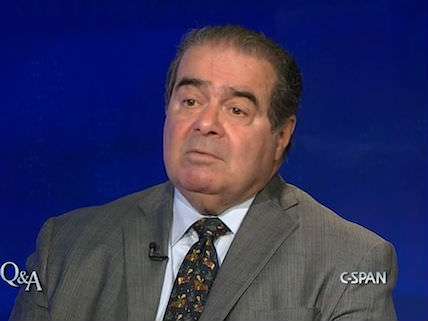SCOTUS Confronts 'Mad Prosecutor' in Illegal Fish Case
Under the Sarbanes-Oxley Act of 2002, it is a federal crime carrying a penalty of up to 20 years in prison to alter, destroy, falsify, mutilate, cover-up, or conceal "any record, document, or tangible object with the intent to impede, obstruct, or influence the investigation or proper administration of any matter within the jurisdiction of any department or agency of the United States." More commonly known as the anti-shredding provision, this law was enacted in the aftermath of Enron financial scandal. In effect, it criminalizes the willful destruction or falsification of financial records that might prove useful to the government in a current or future prosecution.
Yet in 2010 a Florida commercial fisherman named John Yates was convicted under this federal law because he ordered his crew to throw 72 under-sized red groupers back into the water after a federally deputized inspector found those fish to be illegally undersized (at the time, red groupers had to be at least 20 inches long to be legally fished). Yates was sentenced to 30 days in prison for his actions. In 2013 the U.S. Court of Appeals for the 11th Circuit upheld Yates' conviction under the Sarbanes-Oxley Act, holding that because a fish is a "tangible object," Yates broke the law by "knowingly disposing of undersized fish in order to prevent the government from taking lawful custody and control of them."
At oral argument today, the U.S. Supreme Court was asked to consider whether this prosecution was a valid use of federal power or a case of prosecutorial overreach. Judging by the justices' questioning, the fishy prosecution may well end up floating in the chum bucket.

"Is there any other provision of Federal law that has a less penalty than 20 years that could have been applied to this—this captain throwing a fish overboard?" Justice Antonin Scalia asked Roman Martinez, assistant to the solicitor general. "What kind of a mad prosecutor would try to send this guy up for 20 years or risk sending him up for 20 years?"
Justice Ruth Bader Ginsburg followed up with a similar critique. "Is there any guidance that comes from [the Justice Department] to prosecutors?" she asked Martinez.
"You make [Yates] sound like a mob boss or something," observed Chief Justice John Roberts, prompting laughter in the courtroom. "I mean, he was caught" throwing fish back into the water.
"You are really asking the Court to swallow something that is pretty hard to swallow," concurred Justice Samuel Alito. "Do you deny that this statute, as you read it," he said to Martinez, "is capable of being applied to really trivial matters, and yet each of those would carry a potential penalty of 20 years, and then you go further and say that this has to be applied in every one of those crazy little cases."
But Martinez refused to second guess the actions of the federal prosecution. "The prosecution was about the destruction of the evidence," he declared, "and I think it would be a very strange thing if this Court were to say that the obstruction of justice law is somehow applied differently when the offense is trivial."
A ruling in Yates v. United States is expected by June 2015.


Show Comments (18)